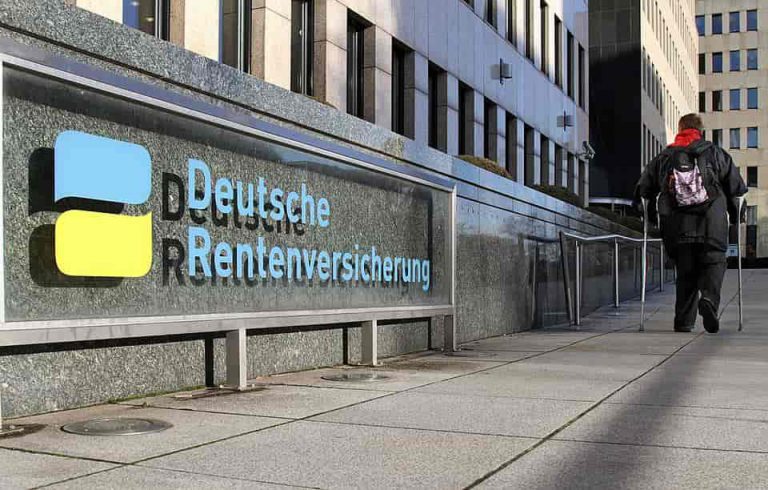Especially consultants and sales people know the procedure all too well. As an employee in Germany working out of office, you are entitled to get a compensation for the extra costs. Usually, the costs of doing business include regular expenses as well so called per diems. In general, per diem rates in Germany are defined by the government and are a way to reimburse the employee for meals away from home. The German system of per diem rates with the Tagespauschale is rather unique compared to other countries. Therefore, this article will give you a quick overview of the daily allowances, covered costs and what to watch out for.
The difference between expenses and Per diem rates
Often, when working in client facing roles employees in Germany need to travel. An traveling incurs extra costs for the business. However, as these are business related expenses, a company will reimburse the employee for these costs. And since reimbursements are based on days spent traveling for business, there is a certain daily (or latin per diem) “allowance” for the employee. Interestingly here, the Ministry of Finance defines the amount of money included in the allowance every year. Also, the name Verpflegungsmehraufwand already implies the purpose of the allowance. To be precise, it covers living expenses (e.g. food and drinks) that are usually higher while traveling. Moreover, it is a fixed amount of money which employees receive regardless of what they have actually spent. Consequently, employees don’t need to collect receipts for meals and file an expense report for meals. Other expenses (such as public transit or taxi) are different and thus employees claim those expenses separately. In summary, a business trip of an employee causes two types of extra costs: general expenses and per diems. Per diem rates in Germany are regulated and the fixed sum covers meals. Additional expenses are recorded based on the receipts collected during a business trip.
Which costs do Per diem rates cover?
Per diem rates are a simplification for calculating money an employee can spend on a business trip. On the one hand, per diems actually make things easier because the employee does not need to collect receipts. On the other hand, in rare cases unexpectedly high costs are not properly taken into account with these rigid rules. Generally, there are two types of costs an employer can cover:
- Meals: When traveling for business purposes, extra costs for food and drinks are meant to be covered by your per diem.
- Accommodation: A per diem rate for overnight stays is optional. There is a fixed rate of 20€ per night which can be reimbursed tax-free. This applies for example when you stay at a friend’s place on your business trip and there is no receipt. Ultimately, the employer can also choose to demand receipts and build their internal policy around this system.
Which costs are not covered by Per diem rates?
Naturally, there are other costs while traveling for business. This includes:
- transportation (by plane or train)
- transportation to and from airport/train station
- accommodation (see above)
- and meals with clients
Per diem rates explicitly do not cover these costs and employees claim them in a regular expense report.
Regulation around Per diem rates
Unsurprisingly, there is clear legislation around per diem rates in Germany. The regulation of income tax in Germany (Sect. 9, § 4(a)) defines the handling of meals and expenses for traveling employees. It says that employees on external occupational activities receive a lump sum to cover additional expenses.
In order to harmonize the system and increase fairness for employees, Germany decided that the government would set the per diem rates instead of individual firms and businesses. Effectively, employees of large and glamorous firms get the same daily allowance as employees of small and medium sized businesses. One could argue that this is excessive interference of the government, but as long as the system is logical and transparent, it might actually be a good thing.
For instance, it reduces the workload around itemized expense reports. Basically, you’ll spend less time about receipt and work that has nothing to do with your job. You’ll save valuable hours of painful filings for expenses. Instead, there’s a formula that tells you how much money you get from per diem rates in Germany based on the length of your trip.
How much are Per diem rates?
In general, the per diem rates in Germany only depend on destination and duration of your business trip. Let’s take Germany as an example:
Basically, there are only two types of per diem rates (it’s the same in other countries, just with different amounts of money). They are based on the length of your working days while traveling:
- Partial allowance: This per diem rate applies for business trips over 8h but under 24h. Moreover, the day of your arrival and the day of your departure will only allow a partial allowance.
- Full allowance: The full rate can only apply to full days of 24h. This means that every day between overnight stays on your multi-day trip, you receive the full allowance. Technically, this applies to days when you are away from the office from 0:00 to 24:00. Hence, an arrival at 1:00 am at night at the hotel will not qualify.
The internal policy of companies can actually set lower rates. However, your staff might feel treated poorly and it actually increases the amount of paperwork you need to do, so this is rather rare.
What do I need to consider as an employer or employee?
Per diems and their filing mean a little bit of administrative work. In return, they offer certain benefits though for employers and their employees. On the one hand, employees do not need to keep every receipt for every coffee they bought on a two week trip. Your report at the end will be much simpler and you only need to keep track of departure date, arrival date and the respective times. And if you stay within the daily allowance or below, you can keep the difference. On the other hand, employers benefit a lot from per diem rates in Germany as well. Especially in travel-intensive industries like consulting or sales, it is much easier to predict travel expenses and cash-flow.
Per diem rates in Germany in 2020
Normally, per diem rates do not change very frequently in Germany. For 2020 they have been updated though, so here you can find the most recent rates:
| Duration | Per diem rates 2020 |
| Between 8h and 24h (or arrival/departure day) | €14 |
| Full day of 24 hours | €28 |
| Overnight stays | €20 |
This structure applies to business trips abroad as well. However, the per diem rates are different for each destination country.
Reimbursements and exceptions
No rule without exceptions. Similarly, per diem rates are not always as straightforward when it comes to reimbursement. For example, when talking about meals, it is important if you were offered a meal by e.g. a client or the hotel. The total allowance is split between breakfast, lunch, and dinner in a 20/40/40 ratio. Often, the hotel rate includes breakfast which is specified on the receipt due to the 19% VAT on food and 7% on lodging. If breakfast is included you need to deduct 20% off your daily allowance. If your client invites you to the on-site cafeteria for lunch or if it is included at a conference, you need to again deduct 40%. This leaves you with 40% of the per diem rate for dinner. If all your meals were provided at no extra cost for you, your per diem rates falls to zero. This makes sense as per diems should cover any extra expenses you have. In case this does not apply, you won’t need to be compensated.
Do you need assistance with Per diem rates in Germany?
This article is supposed to bring clarity to the field of per diem rates in Germany. Usually, your firm should have some kind of IT solution in place to assist you or follow the steps electronically. If you have further questions regarding expense management or best practices, feel free to reach out to our experts via the contact form. We are happy to help and get back to you within 24h.











